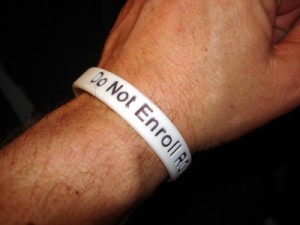Subject: 2009 Next Generation Indie Book Awards – Winner Social Change
Watchdog Nation has received the following communiqué:
We are writing with some fabulous news. Your book — Dave Lieber’s Watchdog Nation: Bite Back When Businesses and Scammers Do You Wrong — has been named the Winner in the Social Change category of the 2009 Next Generation Indie Book Awards. Congratulations!
Your achievement will be published at www.IndieBookAwards.com.
Additionally, your book will be listed as a Winner in the 2009 Next Generation Indie Book Awards catalog which will be distributed at Book Expo America in New York later this month to thousands of attendees including book buyers, library representatives, media, industry professionals, and others.
Once again congratulations from all of us at Independent Book Publishing Professionals Group and the Next Generation Indie Book Awards.
Here is a complete list of the 2009 Winner and Finalists for Social Change:
- WinnerDave Lieber’s Watchdog Nation: Bite Back When Businesses and Scammers Do You Wrong
by Dave Lieber
Yankee Cowboy Publishing
- FinalistAn Unlikely Family: Voices of Ethiopian and American Youth Who Are Turning Tragedy Into Hope
by Ben Beisswenger, Christopher Beisswenger, Margaret Eldred, Zoe Dmitrovsky, Meron Foster, Carolynne Krusi
Anemeone Publishing
- FinalistAudrey on Nantucket
by Audrey Obremski
BookSurge
- FinalistAutism ABC
by Dr. Sherry L. Meinberg
BookSurge
- FinalistBusiness Revolution through Ancestral Wisdom
by Tu Moonwalker and JoAnne O’Brien-Levin, Ph.D.
Outskirts Press
- FinalistGreat Peacemakers: True Stories from Around the World
by Ken Beller and Heather Chase
LTS Press
- FinalistNegotiating with Giants: Get What You Want Against the Odds
by Peter D. Johnston
Negotiation Press
- FinalistNo More Mr. Nice Guy
by James Alston
BookSurge
- FinalistSaints in the City
by Andie Andrews
Outskirts Press
- FinalistThe Thinking Person’s UFO Book
by Gordon Chism
Avenue Design, Inc.
- FinalistThe Third Basic Instinct: How Religion Doesn’t Get You
by Alex S. Key
BookSurge






